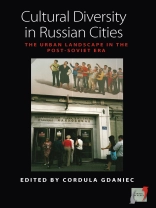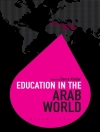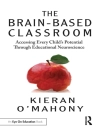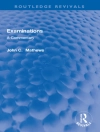Cultural diversity — the multitude of different lifestyles that are not necessarily based on ethnic culture — is a catchphrase increasingly used in place of multiculturalism and in conjunction with globalization. Even though it is often used as a slogan it does capture a widespread phenomenon that cities must contend with in dealing with their increasingly diverse populations. The contributors examine how Russian cities are responding and through case studies from Moscow, St. Petersburg, Novosibirsk, and Sochi explore the ways in which different cultures are inscribed into urban spaces, when and where they are present in public space, and where and how they carve out their private spaces. Through its unique exploration of the Russian example, this volume addresses the implications of the fragmented urban landscape on cultural practices and discourses, ethnicity, lifestyles and subcultures, and economic practices, and in doing so provides important insights applicable to a global context.
Jadual kandungan
Chapter 1. Cultural Diversity Between Staging and the Everyday – Experiences from Moscow, St. Petersburg and Other Russian Cities. An Introduction
Cordula Gdaniec
Chapter 2. Is Chinese Space “Chinese?” New Migrants in St. Petersburg
Megan Dixon
Chapter 3. Contructions of the “Other”: Racialization of Migrants in Moscow and Novosibirsk
Larisa Kosygina
Chapter 4. Reshaping Living Space: Concepts of Home Represented by Women Migrants Working in St.Petersburg
Olga Brednikova and Olga Tkach
Chapter 5. African Communities in Moscow and St. Petersburg: Inclusion and Exclusion to Social Life in Russia
Svetlana Boltovskaya
Chapter 6. The Construction of ‘Marginality’ and ‘Normality’ – In Search of a Collective Identity Among Youth Cultural Scenes in Sochi
Irina Kosterina and Ulia Andreeva
Chapter 7. “You Know What Kind of Place This is, Don’t You?” An Exploration of Lesbian Spaces In Moscow
Katja Sarajeva
Chapter 8. Begging as Economic Practice: Urban Niches in Central St. Petersburg
Maria Scattone
Notes on Contributors
Index
Mengenai Pengarang
Cordula Gdaniec currently works at the German-Russian Museum Berlin-Karlshorst in a project on cultures of remembrance. From 2003-2008, she was a Research Fellow and Lecturer at Humboldt University in Berlin, involved in the project ‘Urban culture and ethnic representation Berlin and Moscow as emerging world cities?’ at the Department of European Ethnology.












